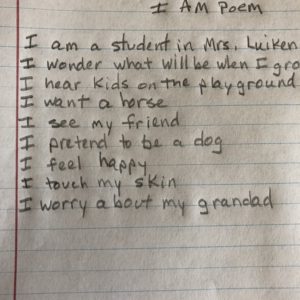
Why Bother Altering Attitudes?
Attitudes are a person’s overall evaluation or opinion about someone or something and I am always surprised by how strong a point of view some of my fourth graders already possess about something. Before teaching a new unit, I always ask what they already know about the topic. Recently, I began teaching poetry and we discussed their thoughts before diving into the first lesson.
“I am no good at rhyming,” said one student.
“I think poetry is boring,” someone else added.
“I am sure it won’t be any fun,” a third student piped up.
My response to all of them was, “Well, I hope by the end of this unit I will have changed your mind.”
A Shift in Thinking
I understand how attitudes are formed. We experience something and based on that experience, we form an attitude about it. But why did these youngsters already think poetry would not be any fun? Where had they adopted the idea that it would be boring or that they had to be good at rhyming? Perhaps they really had no previous experience with this topic and they were simply mimicking someone else’s opinion.
I am not one who falls prey to the biased opinions of my students, so I plowed ahead with the lesson. I started with a simple recipe for them to follow in order to write their first poem. It is called an I Am poem. They only had to fill in the blank after each word: I wonder, I hear, I want, I see, I pretend, I feel, I touch, I worry, I cry, I understand, I say, I dream, I try, and I hope.
The room was quiet as each student bent over their paper and wrote. I walked around the room observing, and at times, helping them to spell a word or to come up with a particular word. Within fifteen minutes, more than half the class had finished writing their first poem and now they wanted to share them.
I was already pleased with how quickly they’d changed their minds on the topic. Smiles on their faces had replaced the doubtful looks and they were chatting among themselves about what they’d written. Finally, after everyone had completed a poem, some of the students stood at the front of the class to recite their pieces. To say the least, they were insightful and funny. But more importantly, my students had already experienced a change in their previous attitudes. Poetry was now fun, not boring and it didn’t have to rhyme.
I don’t know how some of the famous poets such as Mary Oliver or Walt Whitman started their careers. Did they already possess the attitude they needed to write poetry or were they gently persuaded?
Why bother altering attitudes? We just never know how our attitudes may affect another person, but we can always affect them for the better.
New Release
